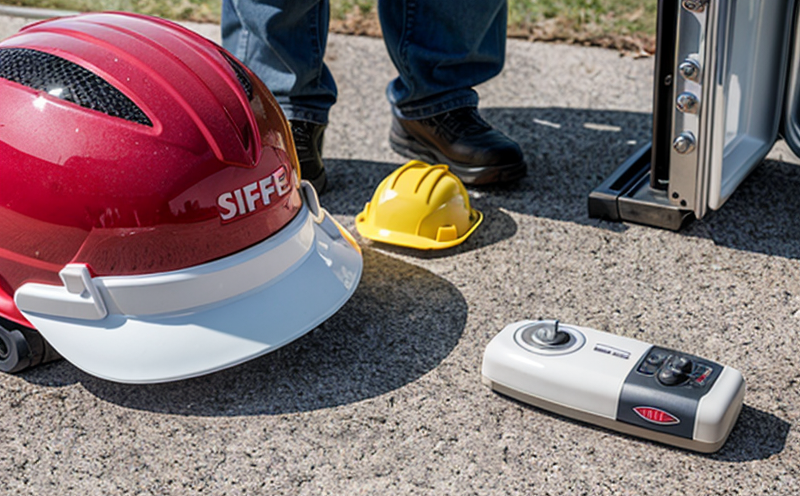ISO 18872 Lifeboat Ballast System Testing
The ISO 18872 standard outlines the requirements and procedures for testing lifeboat ballast systems to ensure their reliability in marine environments. This service is crucial for quality managers, compliance officers, R&D engineers, and procurement teams who are responsible for ensuring that life-saving appliances meet stringent safety standards.
Lifeboats are integral components of maritime safety infrastructure, designed to provide a safe escape route in the event of an emergency aboard a vessel. The ballast system plays a vital role in maintaining stability during evacuation or rescue operations. A poorly performing ballast system can lead to serious accidents and loss of life, emphasizing the importance of thorough testing.
Our ISO 18872 Lifeboat Ballast System Testing service aims to provide comprehensive analysis and validation of these systems according to international standards. This ensures that all stakeholders involved in marine safety have peace of mind knowing that their equipment meets the highest industry benchmarks. Compliance with this standard is not only a requirement but also a testament to your commitment towards maritime safety.
The testing process involves several stages, including initial inspection, functional testing under various simulated conditions, and final evaluation based on specific criteria outlined in ISO 18872. Our team of experts uses state-of-the-art equipment tailored specifically for this purpose, ensuring accurate results that can be trusted by all parties involved.
By choosing our service, you are investing in the future safety of your crew members and passengers. You are also demonstrating leadership within the industry by adhering to internationally recognized best practices.
Benefits
- Enhanced Reliability: Ensures consistent performance across all operating conditions, reducing risks during critical situations.
- Compliance Assurance: Helps meet regulatory requirements set forth by international standards like ISO 18872.
- Increased Confidence: Provides peace of mind knowing that your lifeboat ballast systems are fully functional and safe to use.
- Improved Reputation: Demonstrates a proactive approach towards safety, enhancing brand reputation among clients and stakeholders.
Environmental and Sustainability Contributions
- Reduction of Accidents: By ensuring proper functionality through rigorous testing, we help prevent accidents that could result in environmental pollution or harm to marine ecosystems.
- Sustainable Operations: Meeting stringent safety standards leads to more efficient operations which contribute positively towards sustainable practices onboard vessels.
Use Cases and Application Examples
In the event of a vessel evacuation, lifeboats must be capable of safely transporting crew members or passengers from one location to another. The ballast system within these boats helps maintain stability during movement, ensuring that everyone on board remains secure.
A typical scenario might involve a cruise ship experiencing technical difficulties while at sea. In such cases, it is essential for the lifeboats equipped with functioning ballast systems to be lowered into the water promptly and securely. The ballast system ensures these boats do not capsize or sink during this process. Without proper testing per ISO 18872 guidelines, there would be a higher risk of failure under pressure.
Another example could include research vessels operating in remote areas where rescue services may take longer to reach them if needed. Here again, reliable ballast systems are crucial for ensuring swift and safe evacuations when required.
Our ISO 18872 Lifeboat Ballast System Testing service ensures that these critical pieces of equipment function as intended under all relevant conditions. This helps maintain the integrity of marine safety standards worldwide.





